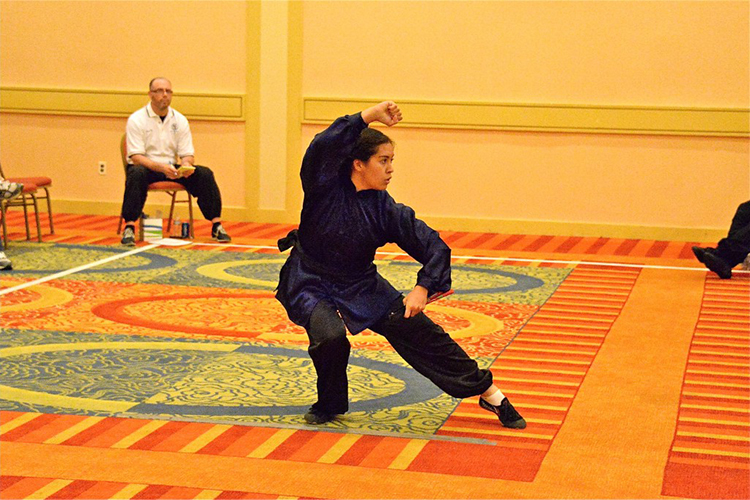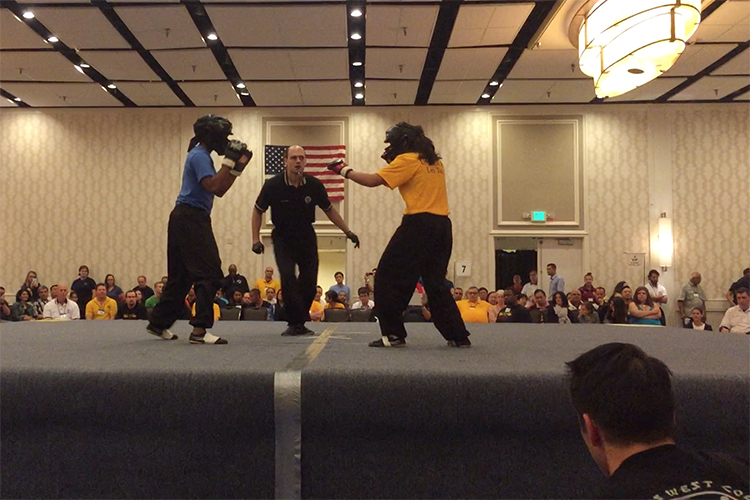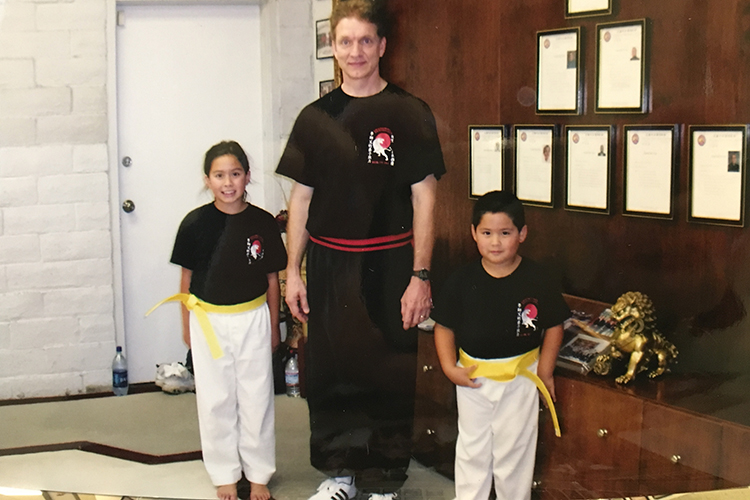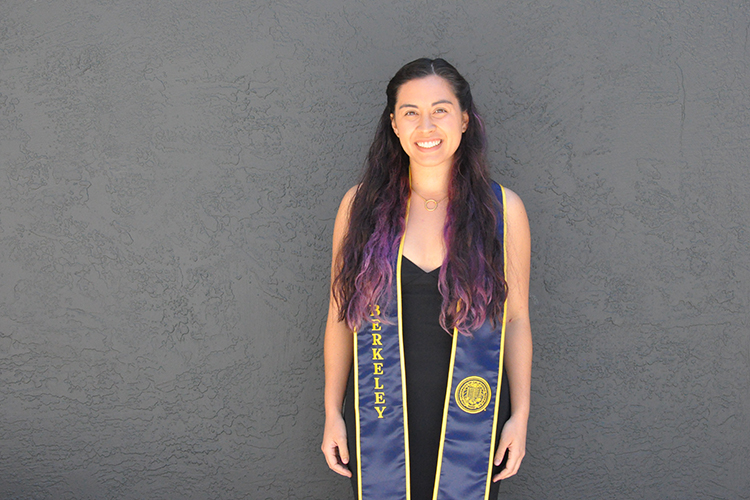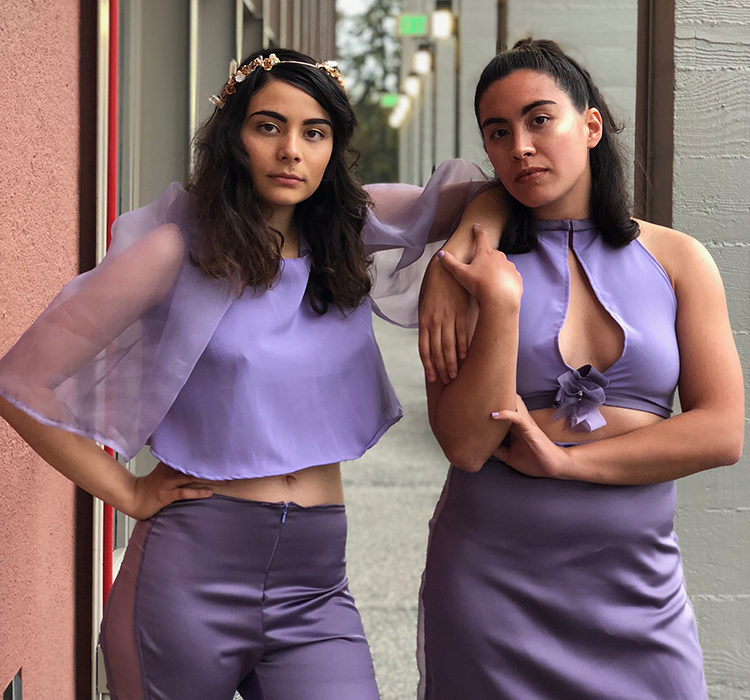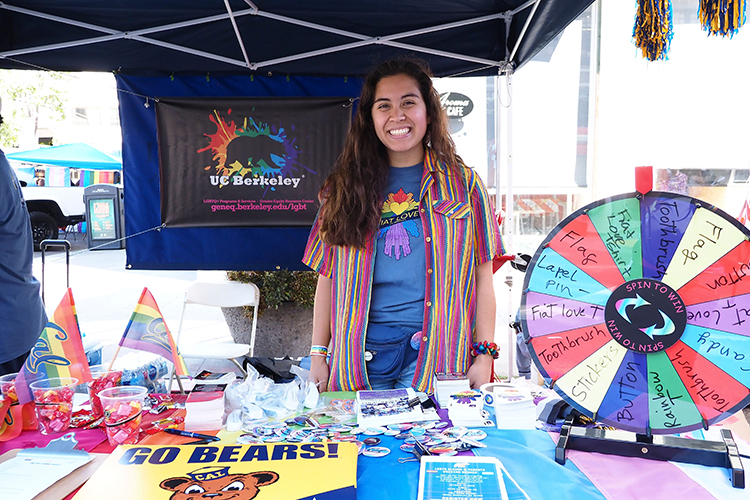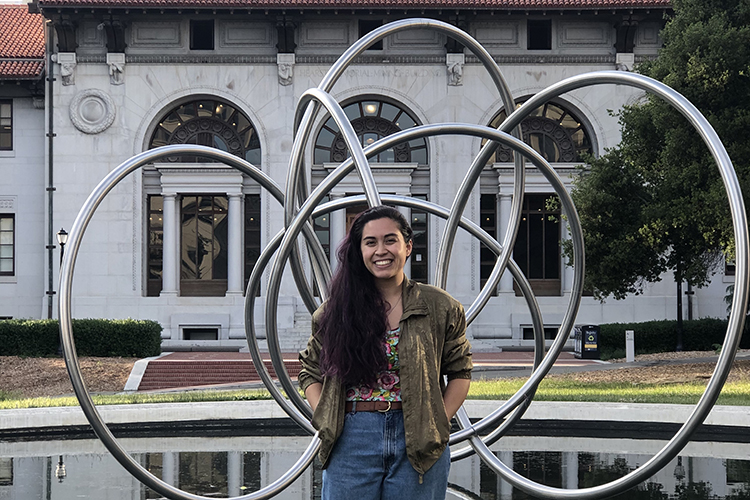
Graduating student Micaela Camozzi’s self-defined identity has changed over the years, from being a young Catholic school student to a queer student of color activist. That journey has led her to dedicating her future to increasing health equity for marginalized communities. (Photo courtesy of Micaela Camozzi)
This I’m A Berkeleyan feature was written as a first-person narrative from an interview with Micaela Camozzi. Have someone you think we should write about? Contact [email protected].
My parents are first generation Americans. My mom’s family is from the Philippines, and my dad’s side is from Italy and Switzerland. They were both raised Catholic, but growing up, my brother and I didn’t feel the pressure of religion in our household.
I grew up in the Bay Area, and I attended Catholic schools in Walnut Creek and Concord. My parents thought it would keep me out of trouble.
They’d see these sixth-grade public school girls wearing little booty shorts, and they said to me “Oh, no. You’re going to wear long plaid skirts.” My dad also noticed my brother and I would play-fight often, and he had us join Kung Fu classes which kept us very busy.
In Catholic school, all students would pray every day before and after class. It was typically a Hail Mary or an Our Father, standard prayers that every kid knew.

Micaela Camozzi posing before her first day of kindergarten in 2003. She would go on to attend Catholic schools in the Bay Area for 13 years before attending UC Berkeley. (Photo courtesy of Micaela Camozzi)
I was with the same 30 kids in every class for 13 years, and they were all Catholic. Students in the school were mostly either white or Asian.
But I was both, the one mixed kid.
Our teachers instilled in us a sense of compassion and empathy through the Catholic religion, which I really appreciated. But they also enforced extreme stigmas about what was good, and what was bad.
I was a good student and very firm in my Catholic faith. I’d sit in the front row of class every day and answer all the questions. My freshman year, I actually won Best Religion Student at my high school. I was in the pro-life club, and I was taught to abstain from sex until marriage, and also that marriage was only allowed between a man and a woman.
It was all very black and white, with no room for grey areas. And we never questioned the things we were taught.
When I was 11, I remember thinking women were beautiful. But I didn’t know being gay was a real thing. I didn’t have the language to describe what I felt, and I didn’t know queer people existed until Katy Perry’s song “I kissed a girl” came out in 2008.
Being abstinent made so much sense to me because I didn’t want to have sex with a man. I actually thought about becoming a nun because I would think “What’s the point of marriage?”
For a religion class project once, I sewed a coat colored like a rainbow. At the time I didn’t think much of it, and no one asked me why I made it.
I think it was because of an Old Testament story in the Bible that pre-dates the tribes of Israel. The story of Joseph. He was one of 12 children and his father’s favorite. His father gave him a really colorful coat and his brothers got mad, and threw him in a well.
All of that kind of mirrored my identity at the time, and what I was feeling. The rainbow representing me being gay. Concealing my sexual identity was like being thrown in that well myself.
The summer after my freshman year in high school I became active in an online blogging community called Tumblr, and I was exposed to more non-Catholic thought.
I also travelled around the world through my Kung Fu training and developed friendships outside of my Catholic school setting: friends who didn’t see being gay as something wrong.
I came out when I was 15.
It was my sophomore year, and the six months leading up to me coming out I was very depressed. When I told my parents I was gay, they were generally supportive. But there was still this anxiety I had not knowing whether or not my friends at school would accept me: Would the God I was praying to still accept me?

Taken in 2012, Micaela Camozzi is dressed in full school uniform while walking into her first day at Carondelet High School, an all-girls Catholic school in Concord, CA. (Photo courtesy of Micaela Camozzi)
Competing in full-contact Kung Fu helped to relieve some of that stress, because, when you’re punching people, it feels pretty great. Eventually some friends accepted me, and others didn’t.
But when I came to UC Berkeley I found a supportive community with the Gender Equity Resource Center. I felt at home with other queer students on campus, but there were still parts of my identity I hadn’t fully grasped.
Honestly, I did not become aware of my own race until I came to college, which is a privilege I acknowledge. Someone called me a person of color for the first time when I was 19, and I was confused because I didn’t think I experienced discrimination like other people of color.
I began to really analyze my cultural identity, and I took on ethnic studies as a minor. Through those courses I realized the rhetoric I was taught as a Catholic, that God made everyone equal, is more complex when it actually plays out in a social setting.
To understand my Filipino identity more, I travelled to the Philippines for the first time last summer to visit my extended family in Davao City and Manila. It was interesting because everyone was like, “Oh, you’re so beautiful, you should be an actress or a model.”
But I think a lot of that was because I’m also white, and have lighter skin.

Micaela Camozzi, left, in Davao City in the Philippines with her grandaunt, center, and aunt, right, after a family dinner. Camozzi visited the country in the summer of 2019 after studying abroad in Thailand. (Photo courtesy of Micaela Camozzi)
There’s this whole history of U.S. intervention and imperialism in the Philippines where Western education, language and beauty standards were emphasized.
So, whiteness was idealized.
Knowing that type of history, and the disadvantages other communities of color have had in the past, has inspired me to do anything I can to create a more equitable world.
I graduate this year with a degree in public health. For my undergraduate honors thesis I volunteered at the Cathedral of Christ the Light in their clinic in Oakland where I was actually taught sexual abstinence as a teenager. The clinic supports uninsured communities of color.
I no longer hold the beliefs I held as a young Catholic, but I still can come to the clinic to support people that need help.
My thesis looked into which communities of color had less access to medical services at the clinic. I found that African American patients were disproportionately facing barriers that prevent them from attending their scheduled appointments.
It was interesting to see that even in my little honors thesis project, the extent of systemic racism we see on a national level in public health, is prevalent on a smaller scale.
I want to support communities that have been historically disadvantaged, and will get that chance as a grad student at Columbia University’s sociomedical sciences Master in Public Health program.
I will study historical barriers to health access related to race, gender, ethnicity, sexuality and disability. I’m excited to join the program but I will be deferring for a year to work at a gender affirming clinic.
The journey I’ve taken to understand my own personal identity, as a queer mixed person, has definitely allowed me to have empathy for people from different backgrounds.
And although I wouldn’t consider myself a full-fledged Catholic anymore, I still hold some of the values that I learned from the religion. I try my best to respect human dignity in every person, and to give grace when people make mistakes.
I think it’s critical to show up for your community and offer support when people are struggling, which definitely has its roots in Catholicism for me. My faith and identity are constantly evolving.
I can hold multiple truths.
While it has taken time for my parents to adjust their pre-existing visions of my life, I am headstrong. The typical parent-child tensions do arise, but I know they are immensely proud of the person I have become and continue to grow into.
Graduating from UC Berkeley is a privilege I have because of them, and I am going to use that privilege to make things better for marginalized communities.
